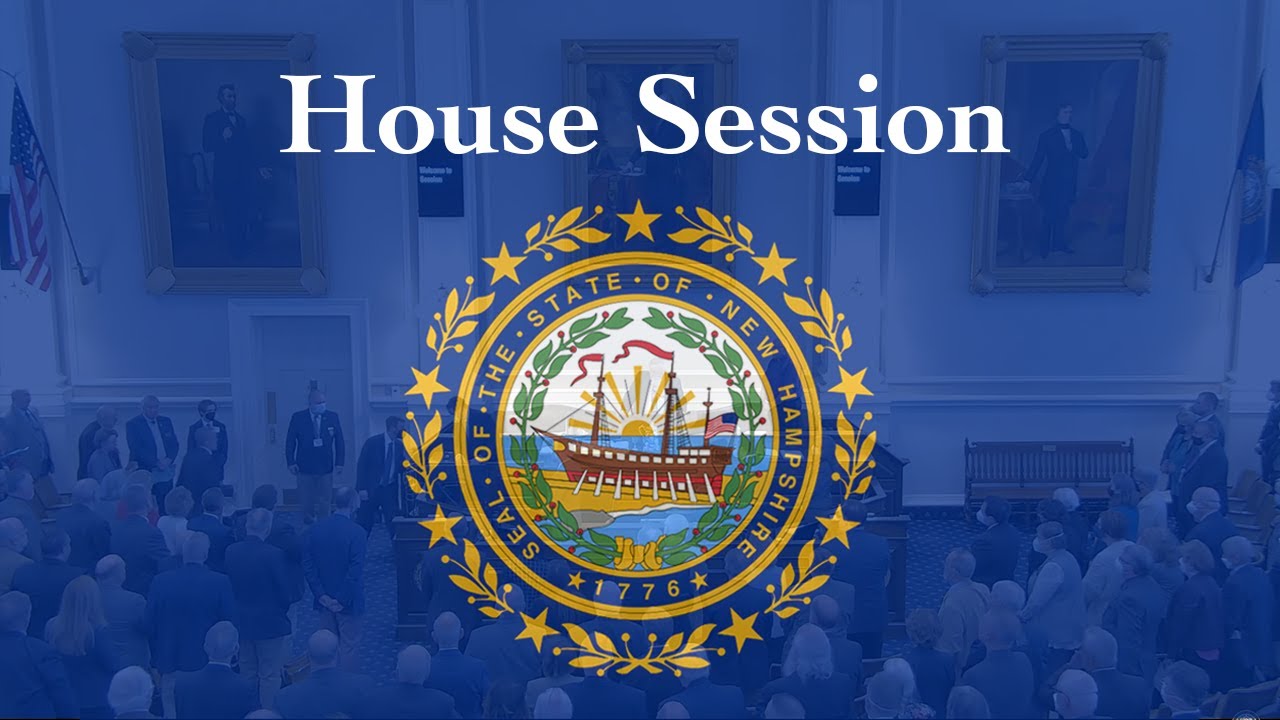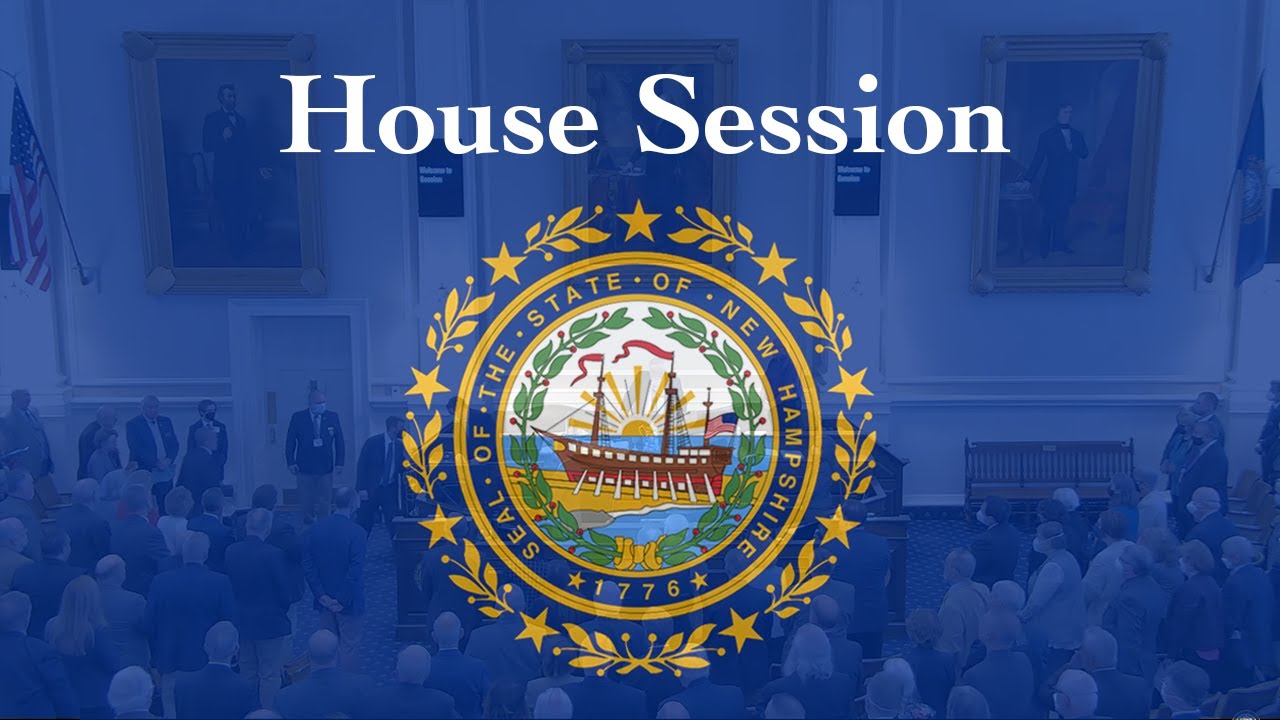Politics
New Hampshire House Advances Bills To Reduce Psilocybin Penalties And Legalize Medical Marijuana Homegrow By Patients

New Hampshire’s House of Representatives on Thursday approved bills that would reduce criminal penalties around psilocybin possession and legalize home cannabis cultivation by state-registered medical marijuana patients. But the proposals now head to the Senate, which has rejected nearly every drug reform proposal that’s come before it this session.
On Thursday evening, for example, senators scuttled another reform bill, voting to table HB 528, from Rep. Kevin Verville (R), which would have decriminalized psilocybin, making a first possession offense punishable by a $100 civil fine.
Under that proposal, which had passed the House of Representatives in March, a first psilocybin offense would be a violation, subject to a fine of $100 or less. Second and third psilocybin offenses would be class B misdemeanors, carrying fines of up to $500 and $1,000, respectively, but with no risk of jail time. Fourth and subsequent offenses would remain classified as felonies.
After its passage by the House, a Senate panel attached an amendment to set mandatory minimum sentences for certain fentanyl-related offenses and for distribution of drugs that result in a user’s death. Sponsor Verville told Marijuana Moment he saw the fentanyl provision as a “fair trade in an effort to finally get some penalty reform for psilocybin.”
But despite the Senate committee’s earlier ought-to-pass recommendation, the full chamber tabled the bill on a voice vote.
As originally introduced, the legislation would have completely removed penalties around obtaining, purchasing, transporting, possessing or using psilocybin, effectively legalizing it on a noncommercial basis. However a House committee amended the bill before unanimously advancing it in March.
A separate measure passed by the House on Thursday could bring about more incremental psilocybin reform. Representatives voted 214–167 to approve an amended version of SB 14, bill that, as passed by the Senate, would set mandatory minimum sentences for certain fentanyl offenses.
As amended by a House committee last month, the bill would also reduce penalties for psilocybin, making it a misdemeanor to possess up to an ounce of the psychedelic. Currently simple possession is classified as a felony.
The measure would not go as far as Verville’s own psilocybin decriminalization bill—which would make a first offense a $100 violation—but it would still end the state’s felony law against simple possession.
“What this bill now has in it is it has real psychedelic reform for the citizens of New Hampshire,” Verville said of the revised bill prior to the floor vote, calling psychedelics “compounds that help people beat alcoholism, opioid addiction, other drug addiction, post-traumatic stress [disorder].”
“I know it’s not a medical bill, but it gets us a little bit closer,” he continued. “It finally ends a felony charge for simple possession of a small amount of psilocybin.”
Verville added that SB 14’s proposed mandatory minimum sentences around fentanyl “are fairly short sentences for felony crimes,” describing the overall bill as “an excellent trade that is for the greater benefit of the citizens of New Hampshire.”
The proposed fentanyl penalties would affect manufacturing, selling, transporting or possession with the intent to sell. Those activities involving 20 or more grams would carry a 3 1/2 year mandatory minimum prison sentence, while 50 or more grams would mean at least seven years behind bars.
With passage by the House of Representatives, the bill now returns to the Senate, where members can agree to the amendments, reject them or request a conference committee to work toward a compromise.
Verville said he’s hoping senators “concur with the House and send the bill off to the Governor.”
“I am very pleased that the NH House passed compromise language in SB 14, bringing much needed, albeit limited psychedelic penalty reform to New Hampshire,” he said in an email to Marijuana Moment. “I certainly hope that the NH Senate will concur with the House position and pass this win-win compromise bill.”
As for medical marijuana homegrow, the House on Thursday also passed an amended version of SB 118 on a voice vote. The measure deals primarily with state law around nursing homes, but a House committee amendment previously added language from HB 53, which would allow home cultivation of medical marijuana by state-registered patients.
Prior to the vote on the amended bill, House lawmakers first rejected an amendment that would have removed the cannabis homegrow provisions. Supporters of the change, which failed on a 103–215 vote—noted that the Senate has so far rejected every marijuana-related reform proposal sent to it by the House this session.
“It hasn’t gone unnoticed that while this house has passed numerous pro-marijuana bills, every one of them have been rejected by the other body,” said Rep. Gary Daniels (R). “When you have a bill that is good, why would you take a risk?”
Fellow Republican Rep. Brian Seaworth, however, said he wanted “to reaffirm the vote I’ve already taken twice on this language”—once when the House passed HB 53 and again when the body gave initial approval to the current bill.
When HB 53 itself landed in the Senate in April, members were initially split on the proposal, with a first vote coming up 12–12. After a number of short recesses, however, the body voted 16–8 along party lines to table the bill.
Seaworth said that given the closeness of the initial vote, “it actually is not unreasonable to suggest that if we send this language—again, the homegrow language—back over the wall, that they may reconsider their position on it.”
Others pointed out that the core provisions of the nursing homes bill had already been included in separate changes to a state budget package.
Rep. Tom Ploszaj (R) told colleagues that meant passing the bill meant that “no policy is at risk, and the cannabis portion merely modifies the existing program.”
The House’s inclusion of the homegrow language in SB 118 returns the question to the Senate.
Under the proposal, which mirrors HB 53, state-registered medical marijuana patients and caregivers could grow up to three mature cannabis plants and three immature plants, as well as 12 seedlings. They could also possess up to eight ounces of usable cannabis from those plants.
Growers would have to keep the plants in secure locations, away from public view or unauthorized access, and cultivation would need to be reported to the state. Landlords could also prohibit the activity.
So far this session, the Senate has been broadly hostile to drug reform proposals. While a number of bills have cleared the House of Representatives—including a renewed effort to legalize adult-use marijuana—nearly all have gone on to die in the Senate.
“These outcomes are disappointing, but unfortunately, they aren’t surprising,” Matt Simon, director of public and government relations at the medical marijuana provider GraniteLeaf Cannabis, told Marijuana Moment last month.
Earlier in the year, Simon said it appeared “that a few senators just want to kill every bill that deals with cannabis policy, no matter how modest and non-controversial”—an observation that’s largely held true.
As for broader cannabis legalization, the Senate in early May narrowly voted to table a House-passed marijuana legalization bill, effectively ending this year’s effort to end cannabis prohibition in the “Live Free or Die” state.
The chamber voted 12–10 to table the measure, HB 198, from Rep. Jared Sullivan (D). It had previously passed the House of Representatives in March, but weeks later the Senate Judiciary Committee recommended the proposal be rejected.
If enacted, the bill would have legalized noncommercial possession and use of marijuana among adults 21 and older, permitting adults to have up to two ounces of marijuana flower, 10 grams of concentrate and up to 2,000 milligrams of THC in other cannabis products.
Sullivan’s proposal was a pared-down version of a legalization measure lawmakers nearly passed last year, under then-Gov. Chris Sununu (R), but it did not include that bill’s regulated commercial system—a controversial issue that ultimately derailed the earlier effort.
Recent state polling suggests New Hampshire residents strongly favor cannabis legalization. In late April, a Granite State Poll, from the University of New Hampshire’s States of Opinion Project, found 70 percent support for the reform, including majorities of Democrats, Republicans and independents.
“Support for legalization has increased slightly since June 2024 (65%) and remains considerably higher than in the mid-2010s,” it added. “Majorities of Democrats (84%), independents (72%), and Republicans (55%) support legalizing marijuana for personal use.”
Last legislative session, New Hampshire lawmakers nearly passed a bill that would have legalized and regulated marijuana for adults—a proposal that then-Gov. Chris Sununu (R) had indicated he’d support. But infighting over how the market would be set up ultimately scuttled that measure. House Democrats narrowly voted to table it at the last minute, taking issue with the proposal’s state-controlled franchise model, which would have given the state unprecedented sway over retail stores and consumer prices.
Image element courtesy of Kristie Gianopulos.




